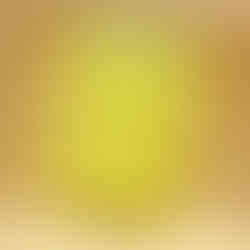Introduction
Pimples are a common skin concern that can affect anyone, regardless of age or gender. They can be caused by a variety of factors, including excess oil production, clogged pores, bacteria, and hormonal imbalances. While there are many products available to treat pimples, one of the simplest and most effective solutions is the use of the right soap. But not all soaps are created equal, and using the wrong one can sometimes make things worse. In this blog, we’ll explore how soap can help combat pimples, what ingredients to look for, and the best practices for achieving clear, healthy skin.

How Does Soap Help with Pimples?
Soap plays a crucial role in maintaining good skin hygiene by cleansing the skin of dirt, oil, and bacteria. Pimples are often caused by a buildup of these impurities on the skin’s surface, which leads to clogged pores and inflammation. Using a suitable soap can help to:
Remove excess oil: One of the main contributors to pimples is an overproduction of sebum (oil). Soap can help reduce the oiliness of the skin, preventing the pores from becoming clogged.
Cleanse away bacteria: Bacteria such as Propionibacterium acnes can aggravate pimples. Soap with antibacterial properties can help reduce the bacteria count on your skin.
Exfoliate dead skin cells: Some soaps contain mild exfoliants that help remove dead skin cells, preventing them from clogging pores.
However, it’s essential to choose the right type of soap to avoid irritating the skin or causing excessive dryness, which can make pimples worse.
What to Look for in a Soap for Pimples
When choosing a soap to help with pimples, look for ingredients that target acne while being gentle on the skin. Here are some key ingredients to consider:
1. Salicylic Acid
Salicylic acid is a beta-hydroxy acid (BHA) that penetrates the pores to dissolve excess oil and dead skin cells. It helps to unclog pores and reduce inflammation, making it a popular ingredient in acne-fighting soaps.
2. Benzoyl Peroxide
Benzoyl peroxide is an antibacterial agent that targets acne-causing bacteria. It also helps to reduce oil production and clear clogged pores.
3. Tea Tree Oil
Tea tree oil is a natural antiseptic and anti-inflammatory agent. It can help reduce the severity of pimples by killing bacteria and soothing irritated skin.
4. Sulfur
Sulfur has been used for decades to treat acne. It works by reducing oil production and helping to unclog pores. It’s often found in medicated soaps for acne-prone skin.
5. Charcoal
Activated charcoal is known for its ability to draw out impurities from the skin. It can help absorb excess oil and remove dirt and toxins, making it a good choice for oily, acne-prone skin.
Best Practices for Using Soap on Acne-Prone Skin
Using soap to combat pimples requires more than just choosing the right product. It’s also important to use it correctly to achieve the best results. Here are some tips:
1. Wash Twice a Day
Wash your face with the soap in the morning and before bedtime to keep your skin clean and reduce the risk of clogged pores.
2. Use Lukewarm Water
Avoid using hot water, as it can strip the skin of its natural oils and cause irritation. Lukewarm water is best for cleansing.
3. Be Gentle
Avoid scrubbing your face too hard with the soap. Gently massage it into your skin in circular motions and rinse thoroughly.
4. Follow Up with a Moisturizer
Using soap can sometimes leave your skin feeling dry. Apply a lightweight, non-comedogenic moisturizer after washing your face to keep your skin hydrated without clogging your pores.
5. Patch Test New Products
Before using a new soap on your face, do a patch test on a small area of your skin to check for any adverse reactions.
Common Mistakes to Avoid
While using soap can help reduce pimples, there are some common mistakes that people make, which can worsen their skin condition:
Overwashing: Washing your face too frequently can strip your skin of natural oils, leading to dryness and irritation.
Using Harsh Soaps: Avoid soaps with strong fragrances, alcohol, or harsh chemicals, as they can irritate the skin.
Skipping Moisturizer: Even oily and acne-prone skin needs hydration. Skipping moisturizer can lead to an overproduction of oil.
Ignoring Skin Type: Choose a soap that matches your skin type. For example, people with dry skin should opt for a gentler soap, while those with oily skin may benefit from stronger acne-fighting ingredients.
Natural Alternatives to Soap for Pimples
For those who prefer natural remedies, there are several alternatives to traditional soap that can help with pimples:
Aloe Vera: Known for its soothing and anti-inflammatory properties.
Honey: A natural antibacterial agent that helps heal acne-prone skin.
Turmeric: Has anti-inflammatory and antibacterial properties that can help reduce acne.
Conclusion
The right soap can be a game-changer in your fight against pimples. Look for our products which are purely organic based and best for all skin types. Follow best practices to achieve clear, healthy skin. Remember, consistency is key. Use your chosen soap regularly and complement it with a proper skincare routine to see the best results.
By making informed choices and avoiding common mistakes, you can keep pimples at bay and enjoy smoother, clearer skin.







Comments